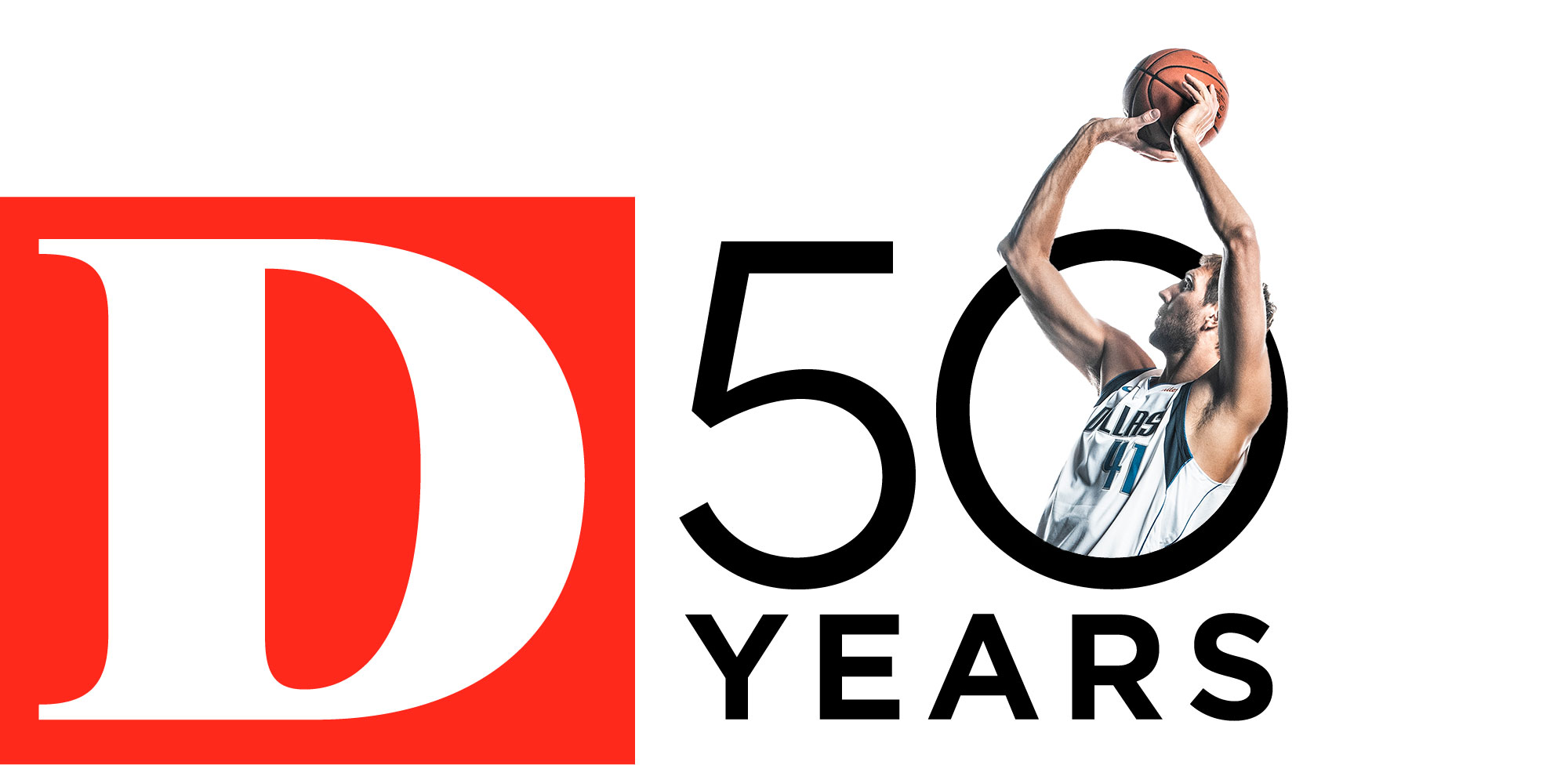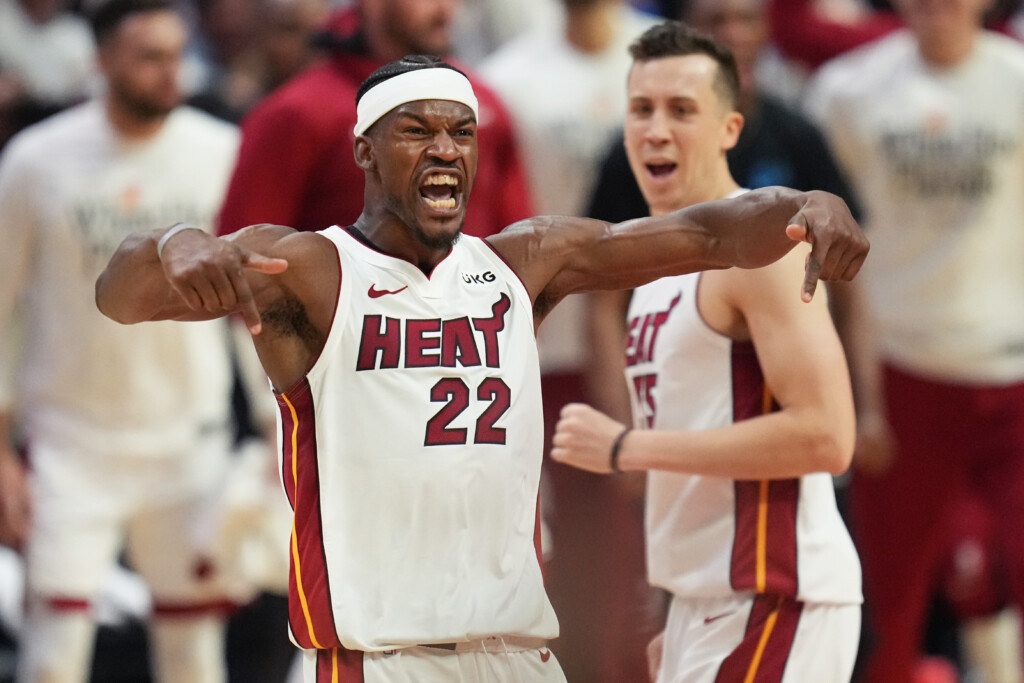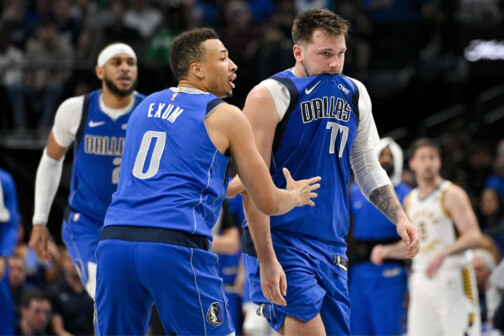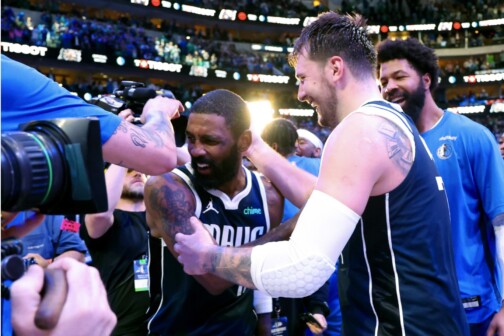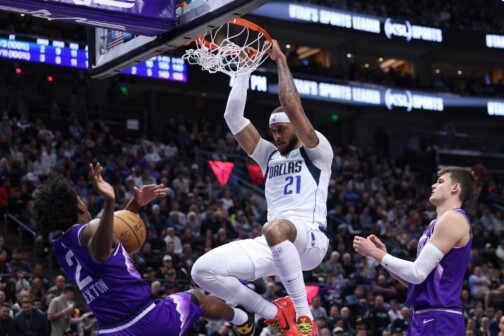When I was seven, my mom wouldn’t let me cross the street when I was playing in front of our house. Ted, my older brother, would purposefully play touch football with friends in the neighbor’s yard across the street, just to taunt me. I was relegated to staying on “my side” and watching the fun: not able to participate, but desperately wanting to. My envy was palpable. I feel the same way now, watching the NBA playoffs and knowing the Mavericks should have been a part of this spring fun. As I watch, I am constantly looking at how other teams are faring and how it relates to the task ahead for the Mavs.
Take, for example, the Miami Heat. They became just the fourth eighth-seed to beat a one-seed in a best-of-seven series and the first to do so in 11 years, when they beat the Milwaukee Bucks in five games in their first-round matchup. They followed it up by stealing home-court advantage from Jalen Brunson’s fourth-seeded Knicks by winning Sunday’s Game 1 in their second-round series. It isn’t surprising, then, to see an undercurrent of chatter about how if the Mavericks just hadn’t tanked their way out of the play-in round, maybe, possibly, this could be them pulling upsets behind one of the strongest one-two scoring punches in the NBA.
Guess what? There is a lesson the Mavericks can learn from Miami. It’s just not what you think.
No, this year’s Mavs probably weren’t going to be giant-killers if they had made the playoffs. Multiple changes are already occurring, and more could be coming, which is testament to their own awareness of that. But careful examination of how Miami won can serve as a guide for the decisions the Mavs front office makes this summer. Let’s look at what made the Heat victorious and see if we can’t glean some wisdom from it.
Shrewd Asset Management
Jimmy Butler’s 56-point performance in Game 4 was one of the best playoff performances of all time, and for an encore, he sent Game 5 into overtime with an acrobatic last-second shot. The Mavs have that sort of north star, too.
The difference in Miami was how they got their guy. Heading into the 2019 offseason, the Heat were the most capped-out team in the league. Butler wanted to go there, and while the cap gymnastics required to orchestrate such a move were extensive, the Heat front office made it work. They had players other teams wanted (Hassan Whiteside, Josh Richardson, Maurice Harkless) and first-round draft picks available to them to use for sweetener to shed salary.
The Mavs, on the other hand, haven’t been the best steward of their assets. We know about Brunson, but there are other examples. Follow along with this depressing chain reaction: Harrison Barnes was traded for cap space, which became Seth Curry and Delon Wright. That turned into Josh Richardson and James Johnson, which turned into Moses Brown and J.J. Redick, which turned into dust.
Not that bad moves haven’t happened in isolation. Remember how the Mavs traded the 26th pick in last year’s draft for Christian Wood? By comparison, recently crowned Sixth Man of the Year Malcolm Brogdon was traded last summer from Indiana to Boston in a package headlined by the 29th pick in this year’s draft. Butler won the Heat the series against the Bucks, and a nimble front office did the work to put him there.
Culture
Chemistry. Vibes. Whatever you want to call it, it’s essential. But it comes from culture. The Heat do sometimes fight, but they also have done the heavy lifting required to work through it. It’s easy to have fun when you’re winning. When things get tough, you see if there is true cohesion.
So, what is “Heat Culture” and why does it work? Yes, it starts at the top with Pat Riley. When he drops his bag of rings on the table, people sit up and listen. But it’s more than that. It’s ingrained up and down the organization. Udonis Haslem is the type of veteran leader the Mavs need, one who demands and commands respect. He is the self-professed gatekeeper of Heat Culture and he expects players, as he put it, to “fall in line.” He preaches “discipline, accountability, work ethic, and enjoying somebody else’s success.”
The Mavs had well-documented issues with chemistry this season. Mark Cuban admitted the team didn’t have an identity. How do the Heat handle that? Erik Spoelstra outlined the symbiotic relationship the team has with its star, Butler: “He is us, and we are him.” Spoelstra talked of Butler being “desperate, urgent, and maniacal.” Sound familiar? For the Mavs, it’s a matter of Luka Doncic rising to the challenge and embracing the responsibility of leadership that comes with being the team’s star. And the team making Doncic’s competitive spirit translate across the organization, at all levels, everyone on the same page.
Spoelstra codifies it for the Heat, and that’s why he is the second-longest tenured coach in the NBA. In Dallas, Jason Kidd has a transparent and solid relationship with his star. Incorporating that into a team identity built on chemistry and trust is the task.
Defense
Miami is, and always has been, built on defense. And a brand of defense that limits easy opportunities at the rim. The Heat gave up the second-fewest points in the paint this season. How? By limiting shots there. They allowed only 30 percent of all shots against them to be taken within six feet of the basket, lowest in the league. Miami turned Giannis Antetokounmpo into a jump shooter in key moments, and the last possession of overtime in Game 5, when the Bucks couldn’t even get off a shot, showed you everything you needed to know about their ability to wall off the paint.
Of course, it takes a nimble defensive center like Bam Adebayo to do that. It’s no secret why the top four teams in defensive rating this year were anchored by these kinds of players: Cleveland with Jarrett Allen and Evan Mobley, Boston with Robert Williams, Memphis with Defensive Player of the Year Jaren Jackson Jr., and Milwaukee with Antetokounmpo and Brook Lopez. After the trade for Kyrie Irving, the Mavericks gave up the sixth-most points in the paint. Many late-season games seemed like a layup line to the basket. Perimeter defense with Doncic and Irving will always be a concern, which makes having adequate help behind them all the more important.
Finding Players in the Bargain Bin
While Butler drove the bus, Miami needed contributions from a number of players to pull off the upset. As Haslem says, “If you ain’t got somebody who can change the tires and the oil, your bus ain’t moving.” Players with dog and fight. You can only pay big money to so many guys. Finding impactful rotation players in unconventional ways has paid huge dividends for the Heat.
Tyler Herro, Miami’s third-leading scorer, broke his hand in Game 1. Then Victor Oladipo was lost for the season. Adebayo, Kyle Lowry, and Kevin Love fouled out of Game 5. For the last two minutes of overtime, the Heat rolled out a lineup of Butler and four guys who were on two-way contracts at some point in their careers. Gabe Vincent started as a two-way player in Miami. Max Strus had a two-way in Chicago before Miami signed him to one in 2020. Caleb Martin signed a two-way in 2021 and was converted to a standard contract that year because of his stellar play. Haywood Highsmith started in Miami on a 10-day contract. And that doesn’t even include Duncan Robinson, who started on a two-way contract in 2018.
Theo Pinson, who started on a 10-day contract during COVID-related absences in December 2021, is the only Mavs two-way player who converted to a standard contract. The likes of Johnathan Motley, Jalen Jones, Daryl Macon, Antonius Cleveland, and more have never signed a standard NBA contract, for the Mavs or any other team. Dallas is a long way removed from elevating the likes of Brandon Bass, Brandan Wright, and Al-Farooq Aminu, in other words. Backfilling behind the likes of Maxi Kleber and Dorian Finney-Smith is a numbers game, and it will take looking at quite a few players to get it right, but talent evaluation at all levels is paramount to success.
We can argue about what the definition of failure is, as Antetokounmpo so eloquently pointed out. The truth is, it’s all about how you respond to disappointment. What are the lessons learned? How do you apply them? Where do you find inspiration?
The Heat beat the team with the best record in the regular season in a playoff series. While it’s fun to think the Mavericks could have done that if they were in the dance, hope is not a strategy. Looking to the example set by the team at the center of so much of this franchise’s history and drama can help the Mavs work through the many facets of building a championship culture. Maybe then they won’t be on the other side of the street watching all the fun and wishing they were a part of it.
Get the ItList Newsletter
Author

